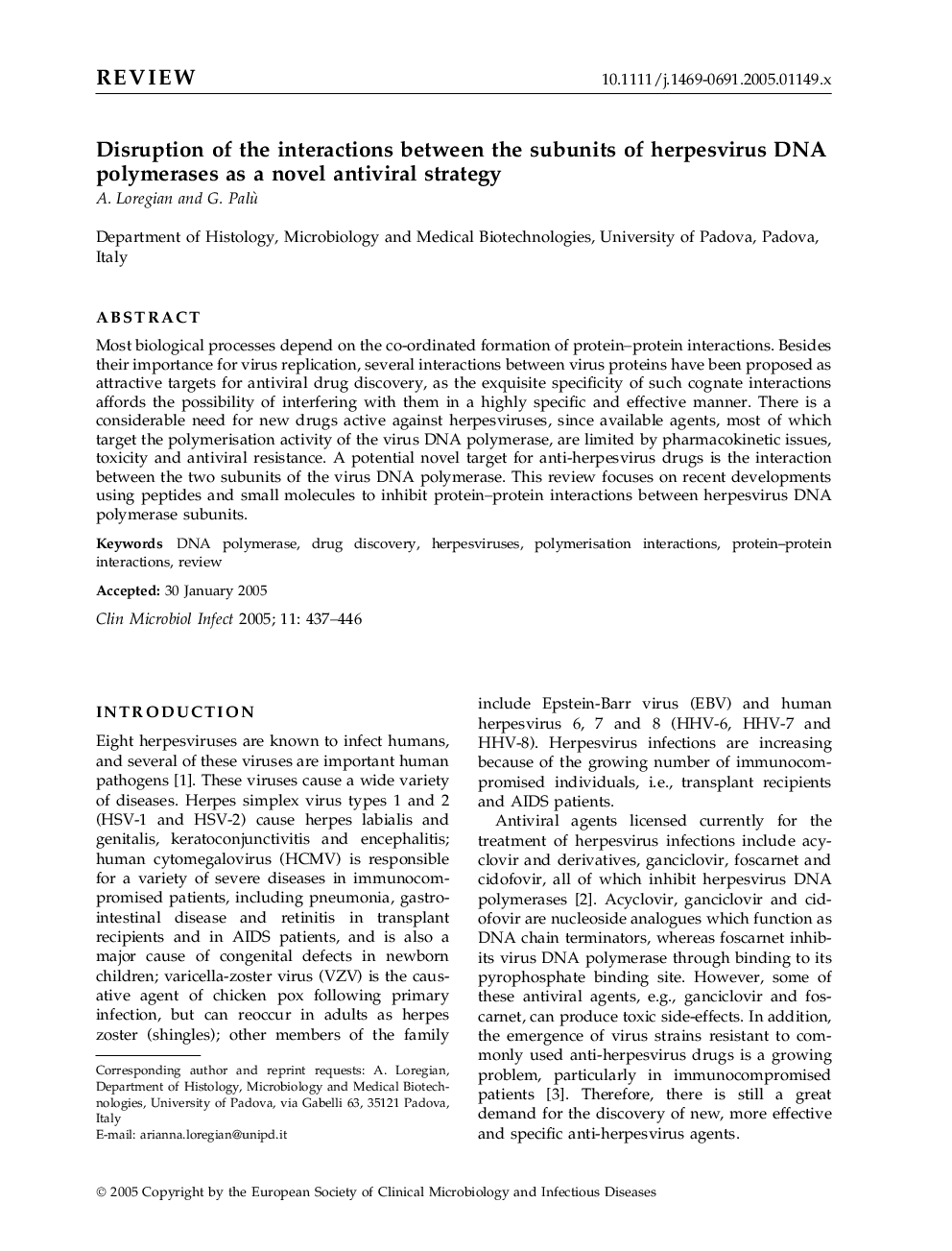| Article ID | Journal | Published Year | Pages | File Type |
|---|---|---|---|---|
| 9276050 | Clinical Microbiology and Infection | 2005 | 10 Pages |
Abstract
Most biological processes depend on the co-ordinated formation of protein-protein interactions. Besides their importance for virus replication, several interactions between virus proteins have been proposed as attractive targets for antiviral drug discovery, as the exquisite specificity of such cognate interactions affords the possibility of interfering with them in a highly specific and effective manner. There is a considerable need for new drugs active against herpesviruses, since available agents, most of which target the polymerisation activity of the virus DNA polymerase, are limited by pharmacokinetic issues, toxicity and antiviral resistance. A potential novel target for anti-herpesvirus drugs is the interaction between the two subunits of the virus DNA polymerase. This review focuses on recent developments using peptides and small molecules to inhibit protein-protein interactions between herpesvirus DNA polymerase subunits.
Related Topics
Life Sciences
Immunology and Microbiology
Microbiology
Authors
A. Loregian, G. Palù,
